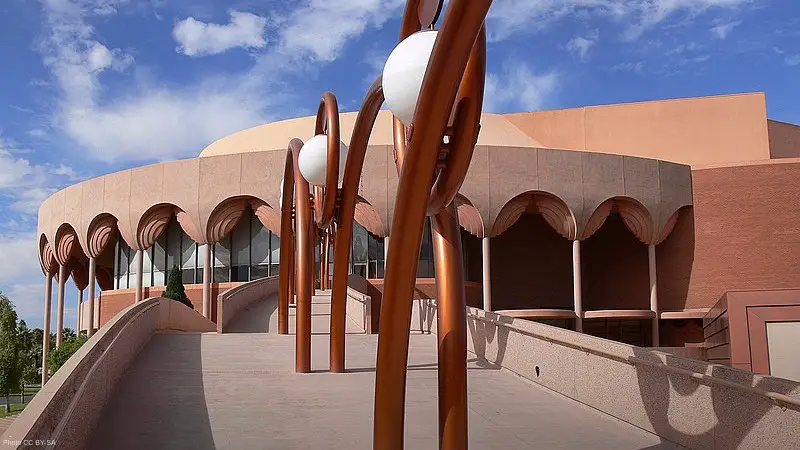Arizona State University (ASU) is making significant strides in digital health and aging research through the establishment of the ASU Roybal Center for Older Adults Living Alone with Cognitive Decline.
Supported by a $5.8 million grant from the National Institute on Aging (NIA), the center aims to develop technology-driven solutions that help older adults maintain independence while managing cognitive challenges. This initiative aligns with ASU’s broader focus on integrating healthcare and digital technology, as highlighted at the recent ASU Digital Health Summit.
With 14 million Americans aging solo, ASU’s Roybal Center aims to address their unique challenges through clinical trials, digital interventions, and behavioral research, helping them age safely and independently.
Key Takeaways
Arizona State University’s Roybal Center aims to develop digital solutions for older adults with cognitive decline, supported by a $5.8 million grant.
- The center will conduct clinical trials focusing on clarifying care preferences and increasing physical activity through social support.
- Digital health tools like wearable devices and remote monitoring are being integrated into research to enhance cognitive care.
- Experts emphasize the need for community engagement and ethical use of personal data to ensure digital health solutions are accessible and equitable.
Role of the ASU Roybal Center in aging research
ASU’s new Roybal Center is focused on developing and testing behavioral and technology-enabled interventions tailored to individuals experiencing cognitive decline. The center’s research will explore ways to support aging adults in their daily lives through digital tools, social support systems, and lifestyle adaptations.
Fang Yu, the Edson College Chair in Dementia Translational Nursing Science and the principal investigator of the center, is the first nurse scientist to lead a Roybal Center. Yu emphasizes that aging is a personal experience, and the goal is to help people age on their own terms.
Yu and her team will conduct studies to understand how different factors—including behavior, technology, and community support—influence cognitive health. The center’s research aims to create practical, real-world solutions that help older adults manage cognitive challenges while maintaining their independence.
Key clinical trials and research focus
The Roybal Center’s research will be wide-ranging, but its first two clinical trials will address two critical issues.
Clarifying care preferences: Led by Assistant Professor Abigail Gómez-Morales, this trial will help older adults with cognitive decline make future healthcare decisions and clarify their care preferences. Planning for future medical care can reduce stress and uncertainty for both individuals and their families.
Increasing physical activity through social support: Associate Professor Molly Maxfield will lead a trial investigating how social support and stress resilience can encourage physical activity. Physical movement plays a significant role in maintaining cognitive well-being, and this study will assess how community-driven motivation can help older adults stay active.
By recruiting a diverse group of participants—both nationally and internationally—the center ensures that its findings apply to various populations with different cultural and social experiences.
The intersection of digital health and aging
ASU’s Digital Health Summit explored how technology is transforming healthcare, particularly for aging populations. With advancements in wearable devices, artificial intelligence, and remote monitoring, older adults now have more tools than ever to manage their health independently.
Leveraging technology for cognitive health
Experts at the summit discussed the potential of digital health tools to enhance cognitive care. One emerging innovation is “digital twins”—virtual models of individuals based on real-world data from wearables and sensors. These models can predict how a person will respond to different interventions, such as medication adherence or lifestyle adjustments, allowing for personalized treatment plans.
Additionally, research conducted by ASU’s College of Health Solutions found that reducing screen time and incorporating more movement into daily routines can significantly benefit cognitive function. Digital tools that encourage physical activity, such as gamified exercise programs and step-tracking applications, are proving to be effective in maintaining brain health.
The Roybal Center’s research will likely integrate findings from digital health studies to improve cognitive health interventions. By incorporating wearable devices, mobile applications, and remote monitoring solutions, the center aims to develop personalized care strategies that align with individual needs and lifestyles.
Overcoming barriers to digital health adoption
While digital health solutions offer promising benefits, there are challenges in ensuring that these technologies are accessible and equitable for all communities. The ASU Digital Health Summit highlighted concerns about the digital divide, particularly among older adults and underserved populations.
Addressing health equity in digital innovation
Maissa Khatib, a research scholar at ASU, emphasized the importance of community engagement when developing digital health solutions. She pointed to the Arizona Community Cohort Model, which involves underrepresented groups in research from the beginning, ensuring that technology is designed with their needs in mind.
Another concern is the ethical use of personal data. Krystal Tsosie, an assistant professor in the School of Life Sciences, is working with the Native BioData Consortium to ensure Indigenous communities retain control over their genetic and health data.
Similarly, Beza Merid, director of the Digital Health and Racial Justice Lab, warned that biases in artificial intelligence and facial recognition technology could lead to disparities in healthcare access. Addressing these issues is crucial for making digital health advancements inclusive and ethical.
The Roybal Center will work alongside experts in digital health to ensure that its interventions are accessible to all aging populations, regardless of socioeconomic status, ethnicity, or location.
Future of aging and digital health research at ASU
ASU’s Roybal Center is strengthening its role in aging and digital health research. Co-director David W. Coon highlights its impact on student training, research expansion, and evidence-based interventions.
The center aims to advance aging research and equip millions of older adults with tools to manage their cognitive health. By combining behavioral research, technology, and health equity, ASU is setting a new standard in cognitive care, ensuring older adults—especially those living alone—can maintain independence and well-being.






